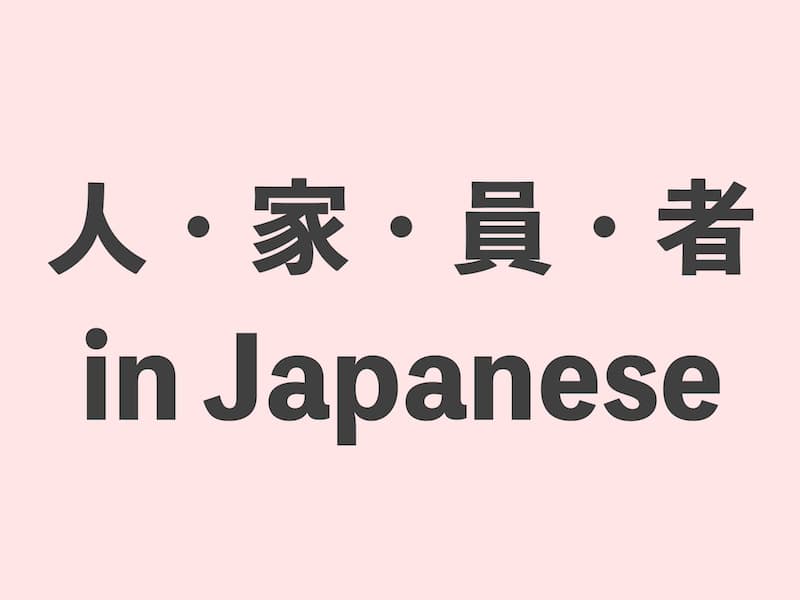“人” (jin), “家” (ka), “員” (in), and “者” (sha) are commonly used words in the Japanese language, each carrying distinct meanings and applications.
JLPT Textbook Recommendations
人(じん)
“人(じん)” is used in combination with words denoting nationality, region, occupation, etc., indicating individuals who fall under those categories or possess those characteristics.
- 日本人 (Nihonjin) – Japanese person
- 外国人 (Gaikokujin) – Foreigner
- アメリカ人 (Amerikajin) – American person
- 自由人 (Jiyuujin) – Free person
- 現代人 (Gendaijin) – Contemporary person
家(か)
“家(か)” refers to individuals related to specific matters or engaged in them. It often points to individuals with certain attributes or tendencies, or those in a particular state.
- 写真家 (Shashinka) – Photographer
- 努力家 (Doryokuka) – Hard worker / Diligent person
- 芸術家 (Geijutsuka) – Artist
- 画家 (Gaka) – Painter
- 作家 (Sakka) – Writer / Author
- 小説家 (Shōsetsuka) – Novelist
員(いん)
“員(いん)” is used as a suffix with nouns, denoting individuals affiliated with a particular organization or group, holding roles or responsibilities within that context.
- 銀行員 (Ginkōin) – Banker / Bank employee
- 教員 (Kyōin) – Teaching staff / Educator
- 会社員 (Kaishain) – Employee
者(しゃ)
“者(しゃ・じゃ)” has a broad meaning encompassing “person” or “thing.” It is used to denote individuals or things with various roles or attributes, such as doctors, hermits, journalists, etc.
- 医者 (Isha) – Doctor / Physician
- 記者 (Kisha) – Reporter / Journalist




コメント